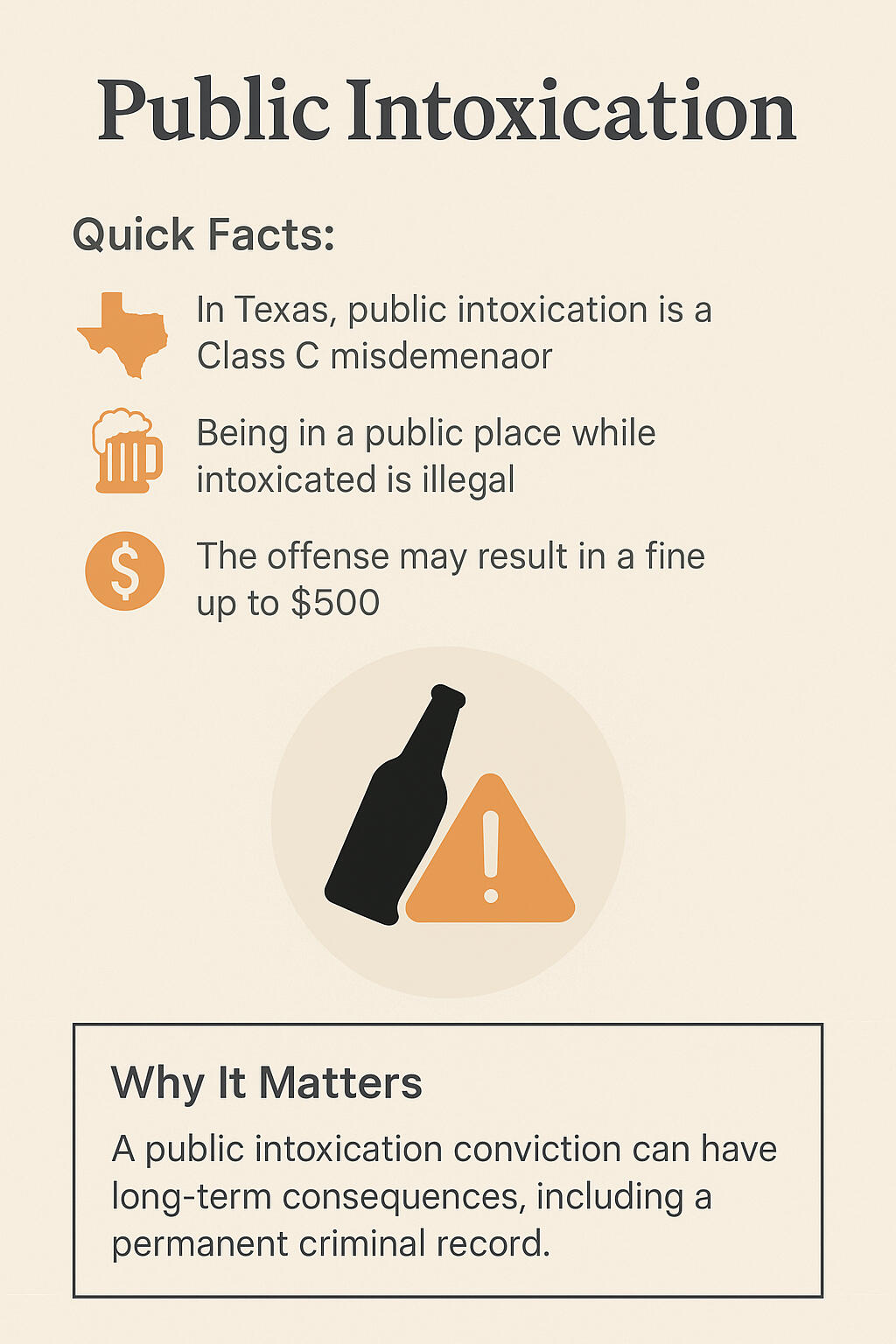
Public Intoxication Laws in Texas
Public intoxication is a serious criminal offense in Texas. It applies when a person appears in a public place while intoxicated to the degree they may endanger themselves or others. Although often considered a minor charge, a Public Intoxication conviction creates a permanent criminal record that impacts employment, housing, and future opportunities.
Texas Penal Code §49.02 defines Public Intoxication as being intoxicated in a public place to the point of potential danger. Law enforcement officers make this determination based on behavior, speech, appearance, and surroundings.The charge is classified as a Class C misdemeanor, punishable by a fine of up to $500. Despite the low-level classification, a conviction results in a permanent criminal record unless the case is later expunged or sealed. College students, professionals, and military members often face serious secondary consequences beyond the fine itself.In Texas, “intoxicated” is a subjective standard for Public Intoxication cases. This means police officers do not have obtain a BAC to prove intoxication.The DWI intoxication standard of not having normal use of mental or physical faculties due to alcohol, drugs, or a combination of substances, or having a blood alcohol concentration of 0.08 or higher, is not applicable.
A Public Intoxication arrest can have long-term consequences. Even though jail is not typically required, defendants are often held overnight for safety and release processing. A conviction creates a publicly accessible criminal record, viewable by employers, schools, and licensing agencies.Because the offense is record-creating, many people seek legal help afterward to clear or seal the record once eligible.Common consequences include:
Court fines up to $500
Temporary detention or booking
Mandatory alcohol awareness programs in some counties
Collateral effects on security clearances, scholarships, and employment

In Texas, Public Intoxication charges do not automatically disappear over time. The record remains visible indefinitely unless it is expunged or sealed through a nondisclosure order.• Expungement is possible if the charge was dismissed, rejected, or resulted in a not-guilty verdict.
• Nondisclosure (record sealing) may apply after certain deferred outcomes.Successfully clearing the record restores privacy and prevents background check visibility. Many people pursue this step to protect employment, professional licensing, and reputation.